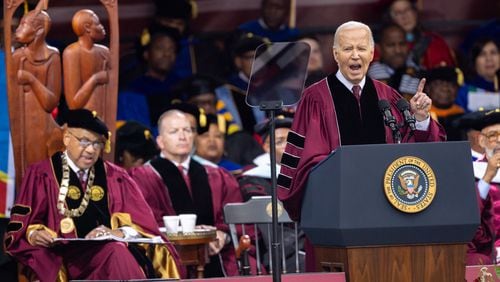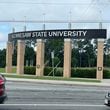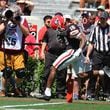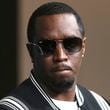It all started with those car rides in west Georgia back in the 1970s.
Pundits say Newt Gingrich resuscitated a faltering presidential campaign with stellar performances in Republican debates Monday and Thursday. If so, part of the credit goes to the drives that then-congressional candidate Gingrich took to candidate forums with Randy Evans, a student at West Georgia College where Gingrich taught, and Evans’ debate coach, Chester Gibson.
For 30 years, Gibson, a communications professor, headed a debate team that often stood toe to toe with teams from Harvard, Dartmouth and Northwestern.
“We’d ride around and professor Gibson had 3-by-5 cards with debate issues and we’d pepper him: ‘What’s the strength of that argument? How is it best articulated?’ ” said Evans, who has been Gingrich’s lawyer and adviser for decades.
As a college student, Gibson debated now-Gov. Nathan Deal, then a student at Mercer University. (“He ripped me to shreds, but he was so nice in doing it,” Gibson recalls.) Later, as a debate coach, Gibson not only aided Gingrich, but helped former Gov. Roy Barnes hone his craft.
On Friday, The Atlanta Journal-Constitution contacted Gibson, 70, who is retired. Gibson, who has trouble speaking after undergoing a laryngectomy for throat cancer, answered questions by computer.
Q: Talk about how you and Gingrich hit it off.
A: I joined the faculty at West Georgia in the fall of 1970, the same month that Newt joined. When he decided to run for Congress, he immediately asked me if I could get the debaters to coach him. We agreed to do it and spent many hours videotaping his debating.
Q: Your teams at West Georgia were renowned.
A: We qualified for the national debate tournament for 30 consecutive years. I was twice named national coach of the year, once by Emory University and once by Georgetown University. Our teams won more than 50 tournaments while I was coaching.
Q: Newt seems to have the gift of gab. What did he do to improve his debating skills?
A: From our first session together, I could tell that his greatest asset was his memory. He did not like using notes. I forced him to take a handful of 3-by-5 index cards and use them in debates to jog his memory. His memory was so good that he would seldom put more than a word or two on the card. That was all he needed.
If you will watch him carefully in the debates, he looks at the person he is talking to and, rather than write down notes, he is planting what they say in his mind.
Q: Talk a little about his debate habits.
A: Newt’s memory is matched by his ability to frame an idea in words people will remember. He is prone to capture an idea into what some call “bombastic phrases.” When he would call me after an appearance on some TV show, I often cautioned him to tone it down. Once he said, “My intention is to move the planet!” I told him phrases like that draw too much attention to him, not to his message.
We have had to work on habits he has like frowning too much. He is getting better at that, but it still creeps in, especially when he is listening intently. I prefer his grin because when I see it coming, I know that he has just conjured up some language that will jolt his audience.
Q: He is known for going for the throat. Is that good or bad?
A: Newt prefers to frame the argument so the issue will be on terms he thinks are more important than what the questioner is asking. That is a great debate technique.
You do not want to engage Newt in a series of caustic barbs. He will get the best of you every time. I have watched him mature through the years, and last night he demonstrated how his debate skills have grown. I no longer fear that he will explode.
Q: Please critique his presidential debates.
A: Newt missed some opportunities. When [Mitt] Romney slammed him for being mentioned only once in Reagan’s memoirs, Newt should come back and link his principles to those of Ronald Reagan as compared to Romney’s.
Q: He has said you urged him to use humor and personality.
A: It was necessary to tone Newt down at times, and we found humor to be a good vehicle. The greatest quality he had as a debater was an ability to accept criticism without attacking the critic. He wanted to learn from us and he had no interest in showing us how wrong we were. He is fully capable of taking any debater or person apart as he did last night with [moderator] John King.
He can shred your position with his words. But I have always known him to genuinely care about other people. Mostly, he wants you to be better informed than you are.
... I hope we get to hear some Obama/Gingrich debates.
About the Author






